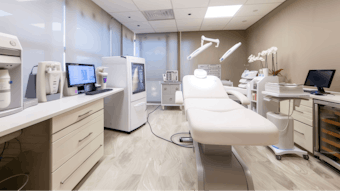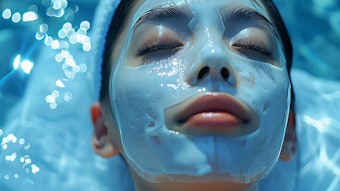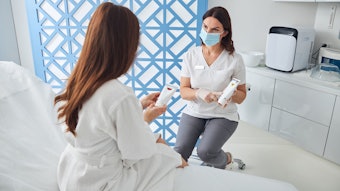
The issue of mental health has risen in society's awareness significantly since the Covid pandemic brought to light the magnitude of the mental health crisis in the U.S. as well as abroad. Nowhere is that more apparent than in the medical aesthetics industry, as the soar in demand for aesthetic treatments after the Covid quaranteen period because of the increased use of digital technology such as Zoom and social media platforms like Tik Tok and Instagram. If you've read our latest piece on the 5 Global Industry Trends Set to Transform the Aesthetics Empire, you might have noticed that navigating social media and its affect on patients' mental health as well as general safety are key topics shaping the industry on a global scale.
Physicians now have the vital responsibility to address the impact of social media aesthetic standards with patients, educating them on what is aesthetically normal for their individual characteristics and manage patient expectations for achieving individual aesthetic goals. As part of this responsibility, physicians are tasked with listening to what a patient may tell them they want in terms of treatment, but it is then the physician’s responsibility to assess and translate what they are and are not saying into a clear picture of their aesthetic desires. Taking patient mental and emotional states into account can help in this endeavor. Saami Khalifian, M.D., explained the advantage of changing how physicians approach consultations with patients and the language used to ask patients about their aesthetic goals. He explained that asking a patient to explain how they feel when looking in the mirror (tired, angry, sad, etc.) can point to the area of their face they actually want treated more effectively than what they might say in response to being asked what area they want treated.
In our recent survey which asked, Is it important to address the mental/emotional wellbeing of patients in relation to their aesthetic goals? 97% of readers said yes and 3% said no.
Looking out for the patient’s best interest when it comes to aesthetic treatments is a key aspect of addressing mental health as a medical aesthetics practitioners. Sometimes telling a patient “no” if they are requesting aesthetic changes based on passing social media beauty fads is ultimately better for them and you than giving in to their demands. Fads change and your priority as their doctor is to consider what is best for enhancing and maintaining their individual beauty, which lasts their lifetime. Taking this into consideration, addressing the mental/emotional wellbeing of patients in relation to their aesthetic goals is critical to providing optimal patient care. Here are seven informative MedEsthetics articles to help you do just that.
- The 5 Global Industry Trends Set to Transform the Aesthetics Empire
- Skin Health is a Mental Wellness Issue: New Study
- How Mommy Makeover Procedures Can Improve Mental Health After Pregnancy
- Limb Lengthening Surgery Improves Men's Confidence & Self-Image
- The Potential Long-Term Industry Effects of the Life Time Fitness Ozempic Pilot Program
- Penile Enhancement: Addressing Negative Societal Misperceptions & Male Confidence
- 6 Ways Social Media Trends Impact Patient Education [Survey Results]
Check back every Tuesday for a new one-click survey.
We'll reveal the answers in next week's MedEsthetics newsletter.











